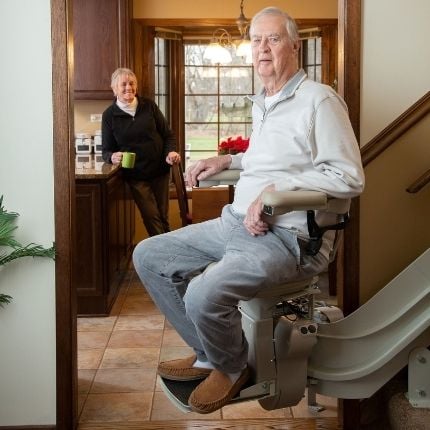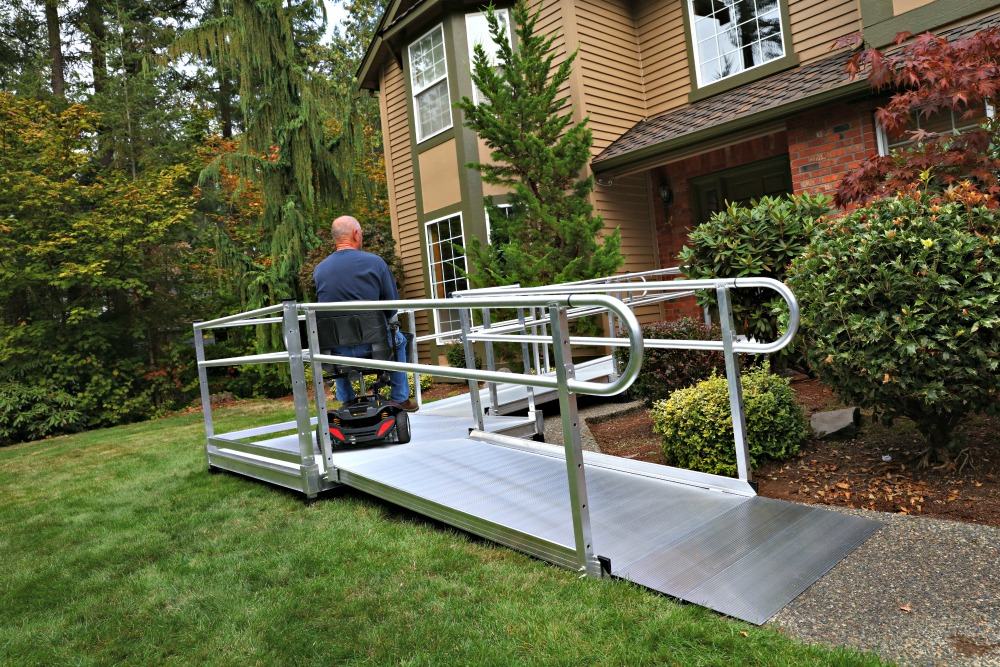Tax Deductions for Accessible Home Modifications
Posted on by Gamburd
Whether you have recently become disabled or have been living with a disability your whole life, you have likely needed to make modifications to your home to support an independent lifestyle. Home modifications can make parts of your home more accessible.

For instance, stair lifts help you access the different levels of your home, from your basement to a second or third story. Or, if you now need the use of a wheelchair, lowering your kitchen countertops helped you continue to prep and cook your own meals.
Aging at home, and maintaining your independence, is important. It’s what keeps you active and taking care of yourself. The right accessible home modifications can also help you with your taxes this year. But before you start listing modifications, learn the main jargon used when preparing your taxes.
Exclusions, Credits and Deductions
It’s always a good idea to hire a professional to do the things in which you are not an expert. This includes taxes. Knowing how to define common tax terms can help you understand your taxes, as well as make informed decisions about your money.

Tax credits are a discount on what you owe, simply because you have been legally declared disabled. Exclusions are items you can leave off your tax forms. An example is if you receive income due to a permanent loss of use for part of your body, you don’t have to be taxed on that money.
With deductions, you can lower the amount of money you owe in taxes. You start with your full income and then for every allowable deduction, you subtract that amount from your income. For example, let’s say you take care of someone with a disability and you pay for a minor surgery they needed that insurance didn’t cover.
You can deduct this amount from what you owe. You can even deduct the costs of the improvements you made to your home to help you live better with your disability.
Medically Necessary Home Improvements
The home improvement medical expense deduction applies to whomever in your house has the disability. This can be you, your spouse, or a dependent living in your home. The home improvement medical expense deduction allows disabled taxpayers to deduct the expenses used to care for the disability. This can include home improvements that are directly related to the disability, not for general health.
Requirements for Accessible Home Improvements

There are certain requirements set forth by the IRS. One of these is that the improvements must be directly related to the medical condition. If you are elderly, or if your disability prevents you from being able to climb the stairs in your home, you may want to install a stair lift. Stair lift installation expenses can be deducted.
However, if you wanted to paint the walls of your stairwell to match the stair lift, you are out of luck. Expenses related to aesthetics, or personal reasons, are not allowed. Having said that, if you had to widen a wall or steps in order to install the lift, that is considered medical.
The IRS checks to see if the improvements are an essential element of treatment. And in this case, treatment can include improvements that improve your mobility and functioning.
Secure Before and After Home Appraisals
When you modify your home with improvements, your home’s value will increase. The IRS allows you to make deductions, and they only tax you on the amount your home’s value increased. To prove this amount, it’s important you get an appraisal before your home modifications as well as after.
This is something to consider during the planning phase of your home modifications. You only must worry about this if the renovations are going to increase the value of your home, though. There are many medical improvements that do not increase the value of your home but that can be deducted for the full amount of the expense.
Allowable Home Improvement Deductions
There is no one size fits all list of home improvement deductions. This is because each person has individual needs to help them thrive with their disability. In addition, new products and improvement ideas are being developed all the time. The IRS does have a general list with common items approved for deductions.
The good news is that the IRS will consider your home modifications on an individual basis if you can provide the evidence that it is directly related to your disability. If your modification is not on the list below, work with your doctor to provide evidence of its need.
List of Deductible Accessible Home Improvements
For those of you who require a wheelchair, there are many approved home modifications. Widening doorways, installing wheelchair ramps over thresholds or steps, and lowering kitchen cabinets or countertops are necessary for helping you succeed at living at home with your disability.

Some of you just need more support around your home. You need something to grab or hold onto. Installing grab bars, railings, and non-skid treads are easy to install and can be deducted from your tax liability.
Stairlifts, shower chairs, raised toilet seats, transfer benches and voice activated assistance systems are items that can be deducted. From large home improvements to small changes like replacing alarms, doorknobs, light fixtures, and even electrical outlets are deductible.
Deductions like these do happen, because they don’t necessarily increase the value of your home, but they do relate to a specific medical problem.
Tax Preparation and Filling
Before you start preparing your taxes, gather all receipts, manuals, and notes from your doctor than can prove the modifications you made are used for medical issues and that they meet your medical needs.
Finally, look for a tax preparer who is literate in deductions associated with disabilities and the elderly. Choose someone who understands the importance of accessible home modifications for your medical condition, and deductions for your finances.
Additional Resources
